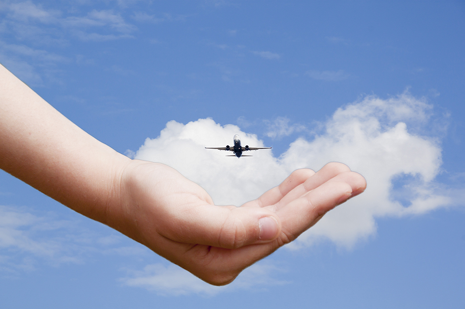
Translation (Version Française) : Les tarifs de secours - le meilleur recours par temps de faillite (pdf)
Wow Air, Niki and now Aigle Azur. These are among the latest European airlines to cease operations, affecting thousands of passengers. Images and stories of travelers unable to leave on vacation or to get home make the headlines, sparking reactions from all different parties involved, including the traveling public, governments, airlines, and travel agencies associations.
Travel Agents are suggesting that one way to get travelers home in the event of an airline collapse is for all passengers to pay a fee on top of the ticket price, creating a ‘rescue fund’. This would act as a mandatory insurance, a ‘plan B’ to guarantee refunding passengers or bringing them home if an airline ceases to operate. It sounds like a simple idea, but there are several problems with it.
Firstly, double-paying. The extra costs of the fund will push up air ticket prices for everyone. And most people already pay for travel insurance or have refund protection if they pay via their credit card.
Secondly, it’s a sledgehammer to crack a nut: the European Commission has estimated that between 2011 and 2020, only 0.07% of all passengers could be affected by airline bankruptcy, and of them, only 12% would require assistance in getting home.
Finally, administration costs could be high. As much as 85% of the total money in the fund, according to one estimate.
So, what is the best way to tackle the problem? “We looked carefully at potential solutions, and in 2014, IATA implemented the voluntary repatriation assistance to passengers stranded as a result of financial failure by another airline, more commonly referred to as ’rescue fares’”, says Monique de Smet, IATA’s Director EU Affairs. “In short, IATA member airlines flying to and from the European Union will make their best efforts to offer repatriation to passengers stranded away from home as a result of a financial failure of another airline.”
When the system is activated, stranded passengers are returned, subject to available capacity, to their point of origin, or to the nearest airport served by an IATA member airline, at a discounted rate (also known as a “rescue fare”). Such assistance is available up to two weeks after the date of failure of the original airline. To ensure maximum awareness, the State responsible for the licensing of the insolvent airline communicates to stranded passengers the possibility of this rescue service, e.g. via national Government websites. This rescue service should only be available for passengers who do not have insurance covering such repatriation.
“This system is getting better and better” insists de Smet. “In the case of WOW for example, 13 airlines offered rescue fares.” Regarding the situation with Aigle Azur cancelling all their flights, IATA activated the rescue fares at the request of the French DGAC on September 6th. Air France was the first member to reach out and offer solutions to stranded passengers with other member airlines following. As of September 11th, a total of 9 airlines have offered special rates to affected passengers:
• Air France
• Air Caraïbes
• Corsair
• XL Airways
• Transavia
• Alitalia
• Vueling
• Air Algérie
• ASL
Close liaison with governments is vital when airlines run into trouble. In fact, the licensing state has an obligation under European law to monitor the financial situation of its airlines. But the role of government can go much further. Airlines are setting the rescue fares at a very low rate, but unfortunately, prices can remain high due to taxes being added on top. It is not unusual for taxes and charges to make up more than 50% of the ticket price.
“While airlines are stepping up and helping out, ensuring passengers suffer as little disruption as possible, other stakeholders are not playing their part. Airline bankruptcies are fortunately still rare. The fairest and most efficient way to protect passengers is for governments and others to take part in this initiative and reduce their charges and taxes,” says de Smet.